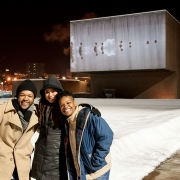Urban Video Project: Interview with Curators of Black Radical Imagination
Light Work is pleased to announce a series of special posts from our affiliated program, Urban Video Project (UVP). UVP is a multi-media public art initiative of Light Work and Syracuse University, and an important international venue for the public presentation of video and electronic arts. Operating on the Connective Corridor cultural strip in Syracuse, NY, UVP’s flagship site UVP Everson features year-round, outdoor public projections onto the facade of the I.M. Pei designed Everson Museum of Art. UVP is one of few projects in the United States dedicated to continuous and ongoing video art projections. For more information about the Urban Video Project, please visit UVP’s website.
As part of UVP’s 2014-2015 curatorial program, Celestial Navigation: a year into the afro future, UVP, parent organization Light Work, and the Community Folk Art Center recently hosted Black Radical Imagination I and II, a two-part screening of experimental short films and video works curated by Erin Christovale and Amir George. Inspired by the emergent discourses of Afrofuturism and Afrosurrealism, Erin and Amir have organized three programs of films by contemporary black filmmakers that represent a radical departure from mainstream cinema.
UVP’s current exhibition at UVP Everson, Jeannette Ehlers: Black Bullets, is one of many works included in the Black Radical Imagination (BRI) programs. Jeannette Ehlers: Black Bullets will remain on view at UVP Everson through March 28, 2015.
Tiffany E. Barber and Jerome P Dent, Jr. are scholars who engage with Afrofuturism and its critique. They conducted a brief interview with BRI curators Erin and Amir over email to learn more about their curatorial approach and future projects. Below is the interview transcript.
—
Tiffany E. Barber: How did Black Radical Imagination first come about?
Erin Christovale: Black Radical Imagination first came about when a mutual friend introduced Amir and I because we are both young, black film programmers in our respective cities, Los Angeles and Chicago. Being in this unique position, we started a conversation about our love for black independent cinema and emerging visual artists who use new media to create film and video works. At the time, we were also reading Freedom Dreams: Black Radical Imagination by Robin D.G. Kelley, which chronicles various liberation movements by black folk and suggests that without the concept of imagining a new future these historical movements would not have been possible. We wanted to apply that philosophy to the cinematic realm, in hopes of creating a new center of thought-provoking and experimental cinema outside of the larger entertainment industry that typically casts black characters as harsh stereotypes and takes ownership of their stories. From there, we created a program of seven short films that challenge normative ideas of blackness and that also celebrate the philosophy of Afrofuturism.
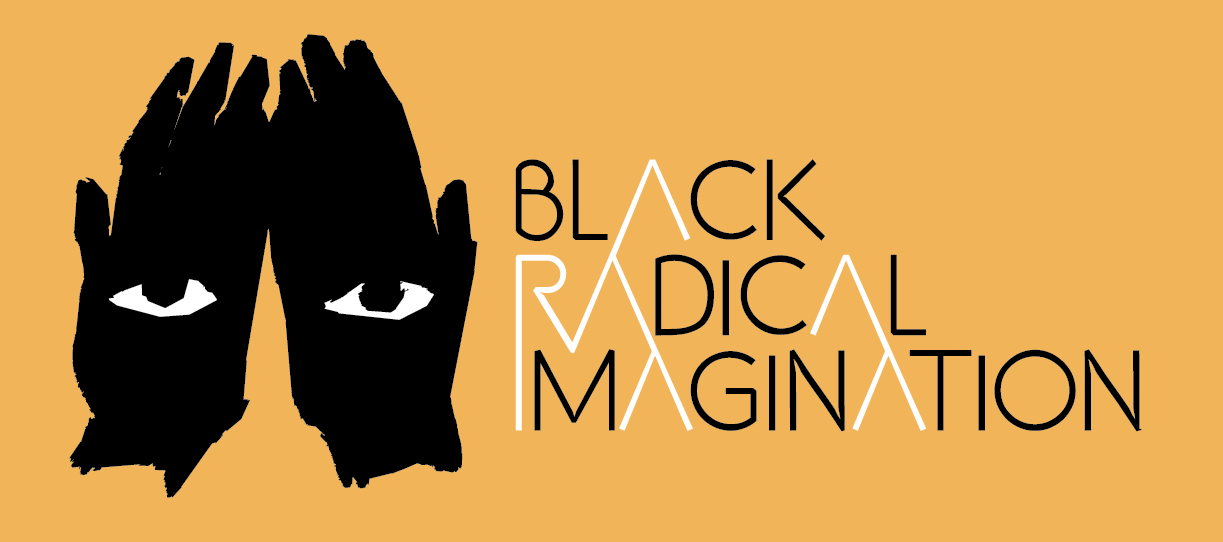
Black Radical Imagination logo
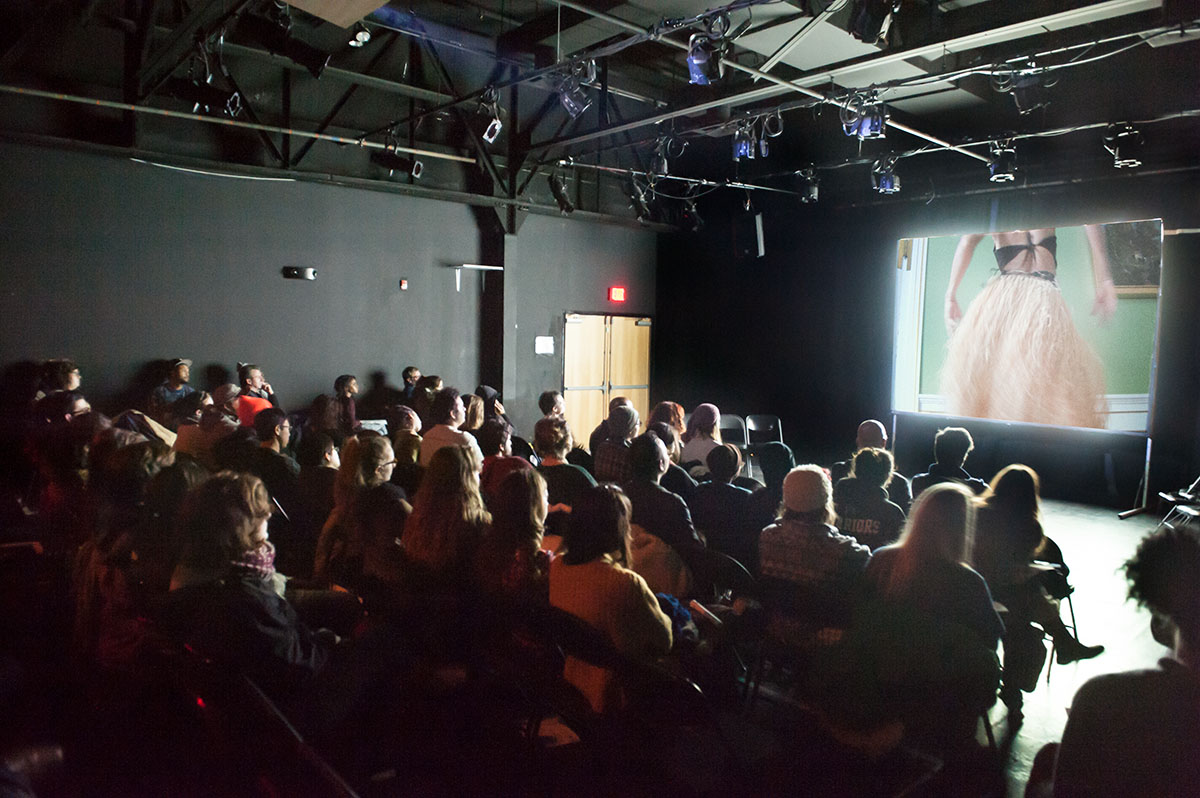
BRI II Screening at Community Folk Art Center
Jerome P Dent, Jr.: How do you two define Afrofuturism? It’s such a broad term now; how did it shape your first series, a celebration of the philosophy of Afrofuturism as you say, and open onto the second group of films you two curated – Black Radical Imagination II?
EC: Afrofuturism is a term first coined by Mark Dery and is essentially “recreating the past to imagine new futures.” In Black Radical Imagination, we adopt this term in a cinematic way, selecting shorts that defy a mundane or oppressive future by inserting black bodies in space, time travel, and new dimensions. I think the narratives presented in our first program really align themselves with the experimental nature of the program we wanted to highlight.
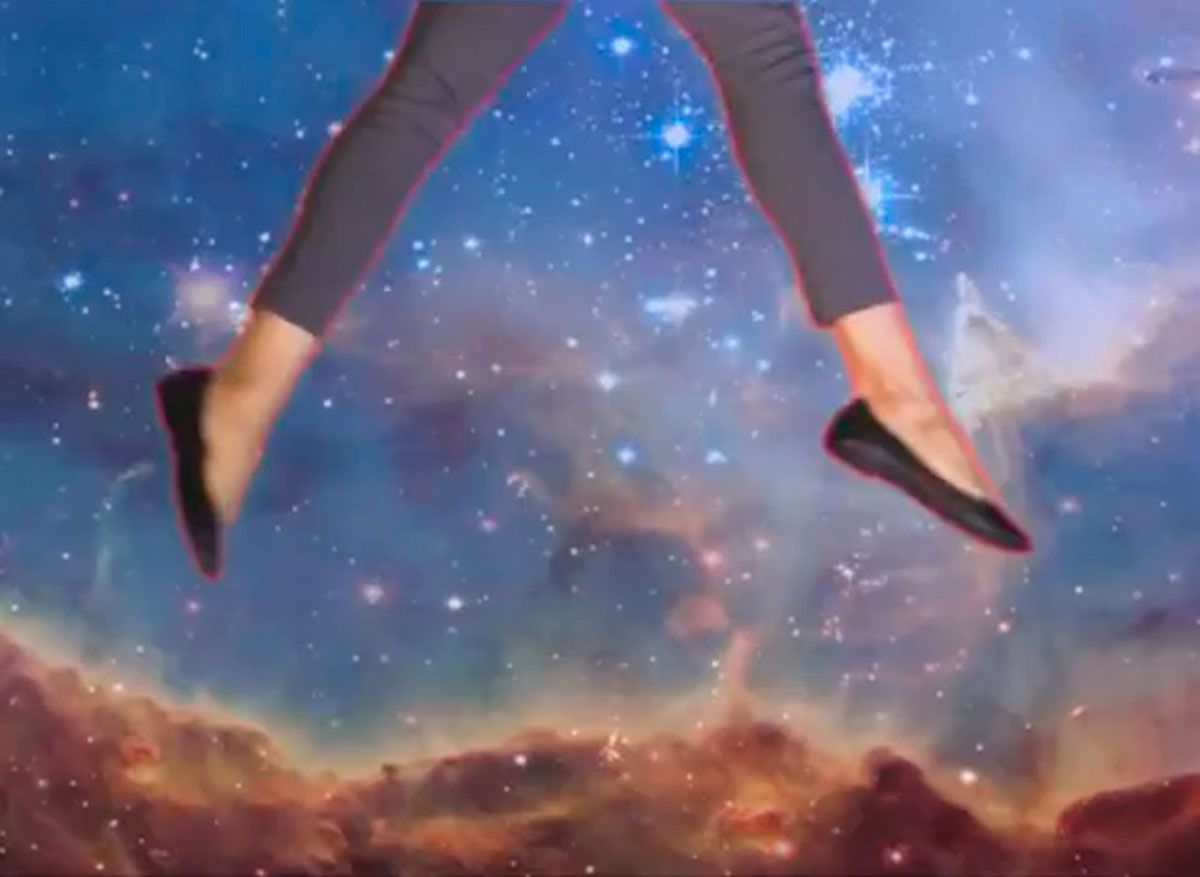
Still from Mae’s Journal by Amir George
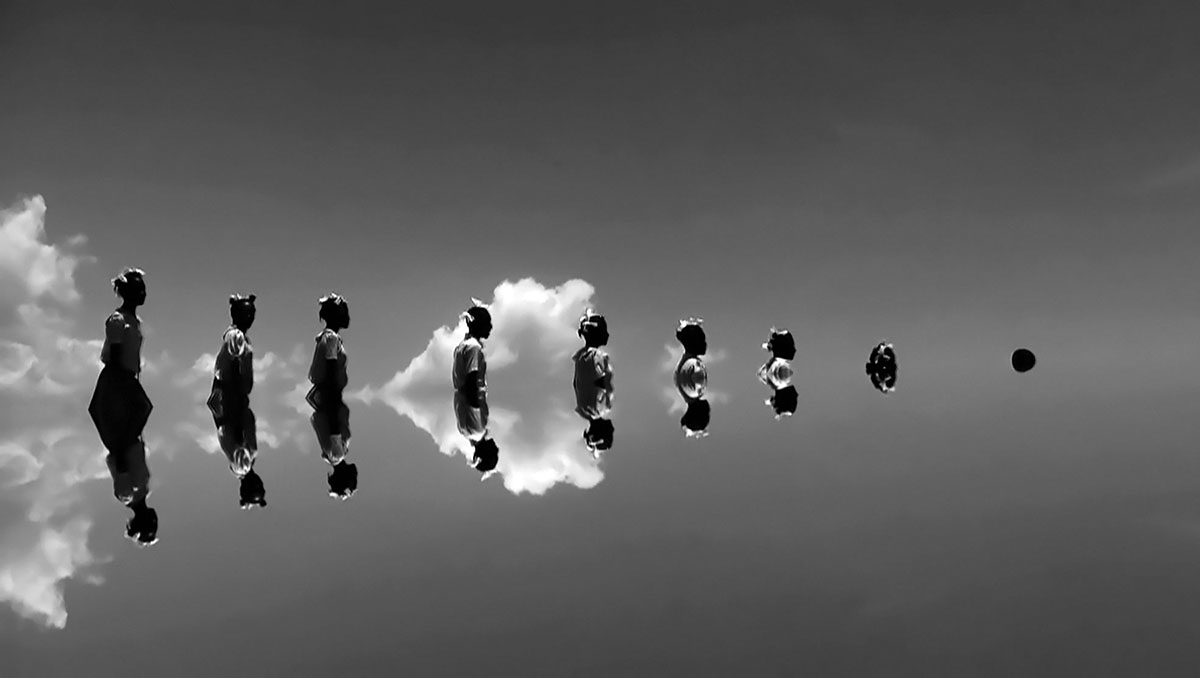
Still from Black Bulletts by Jeannette Ehlers
JPD: The second iteration of BRI centers on Afrosurrealism and the third iteration is a move away from the thematic structure of the first two. Can you tell us how you two conceive of Afrosurrealism and about your approach to the current BRI program, which isn’t explicitly linked to terms like Afrofuturism and Afrosurrealism?
Amir George: Afrosurrealism is a term coined by D. Scot Miller, a writer based in the Bay area. It revolves around a mystical and spiritual context. Our approach to the current program expands on the reclamation of the black body.
EC: Yes, the term was inspired by Amiri Baraka who describes Henry Dumas’s stories as Afro-Surreal Expressionism. Baraka says, “Dumas’s power lay in his skill at creating an entirely different world organically connected to this one…they are also stories of real life, now or whenever, constructed in weirdness and poetry in which the contemporaneity of essential themes become clear.” In this spirit, the films we screened as part of BRI in 2014 program revel in the transfer of African spiritualities to the Americas and how that relation continues to shape our Diasporic culture.
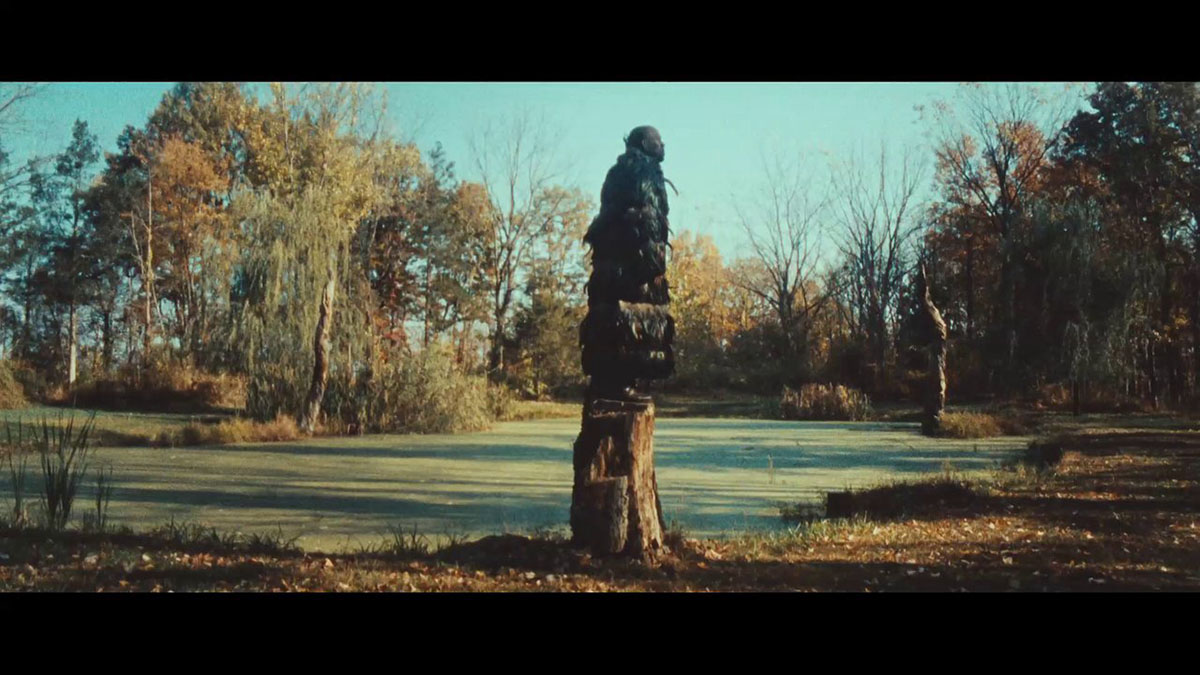
Still from Moonrising by Sanford Biggers and Terrance Nance
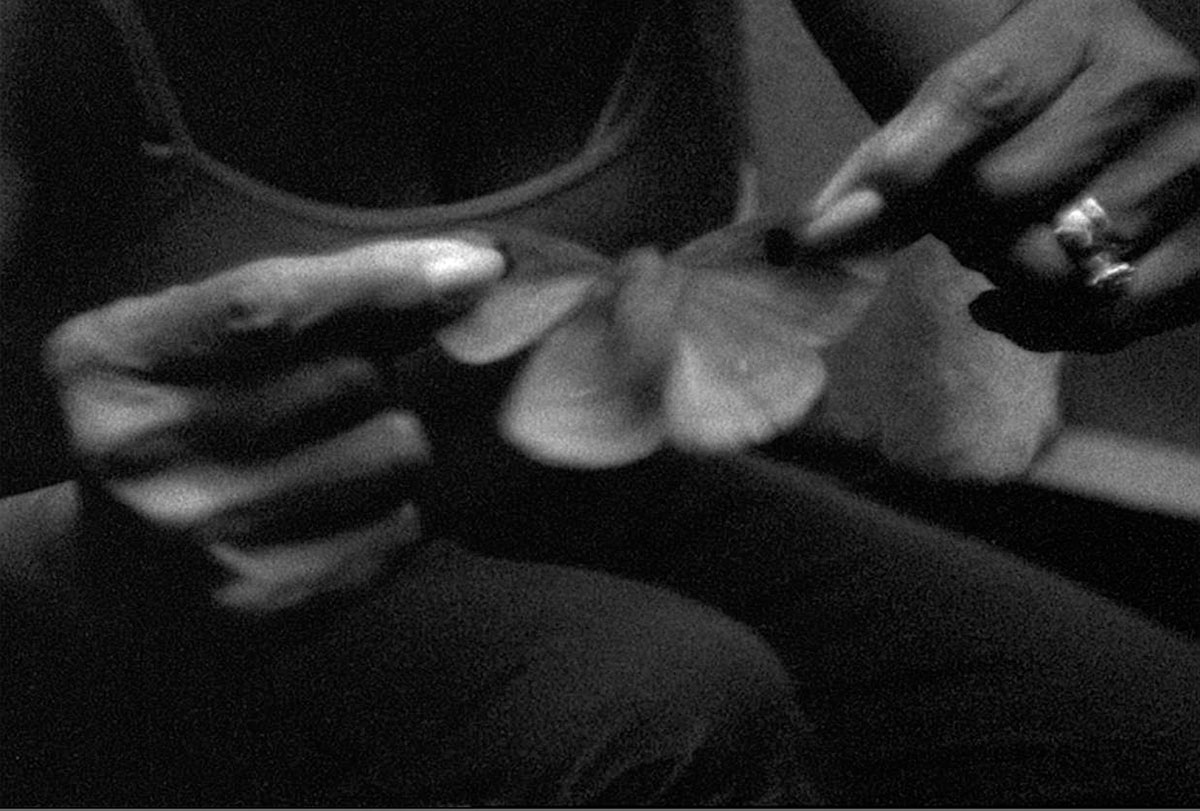
Still from Field Notes by Vashti Harrison
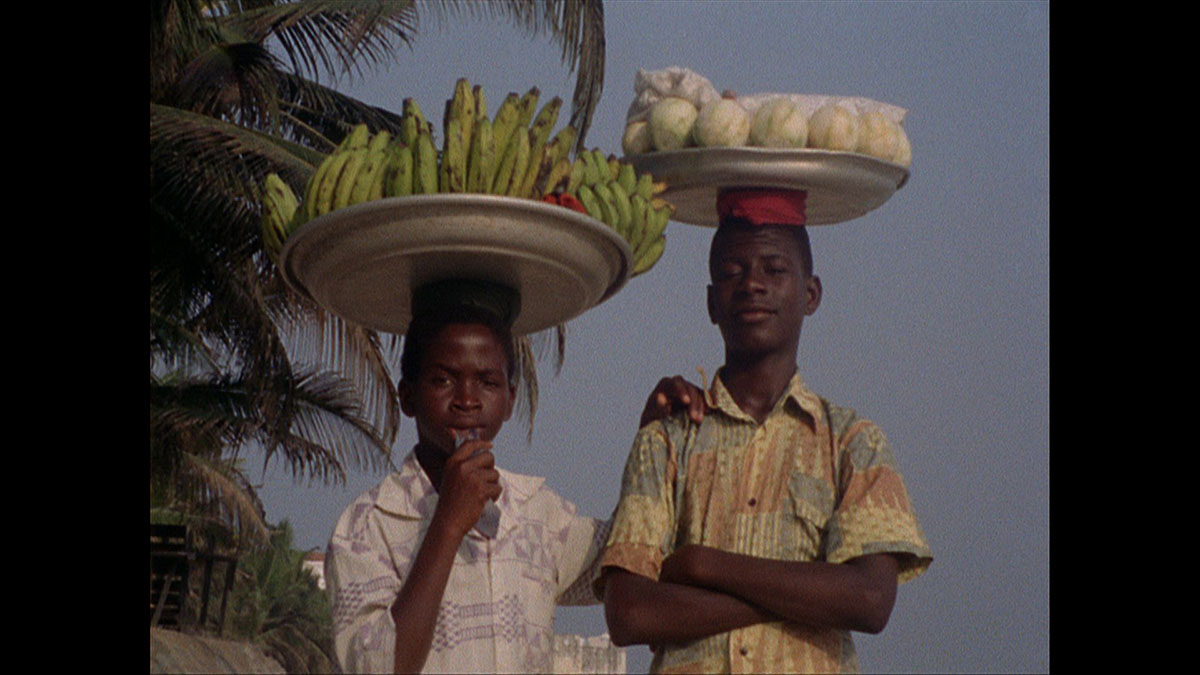
Still from American Hunger by Ephraim Asili
TEB: You’ve said that BRI was inspired by Robin D.G. Kelley’s work, and UVP is hosting a panel discussion on Afrofuturism as a platform for social change in a few weeks. Given recent national protests – #BlackLivesMatter for instance – do you two consider BRI a way of life that has political implications now?
AG: I think BRI is more of a school of thought that has gathered audiences interested in discussing the themes being presented within the films. Our platform has given other voices the chance to be heard and allowed for open political conversations about the current state of things.
EC: In LA earlier this year, we were able to use our platform at the LA Book Fair to facilitate a conversation between Black Lives Matter and Printed Matter (the non-profit that hosts the book fair). With the films in the program as a backdrop, I think we continue a black radical tradition as artists and creatives who support larger direct action of community organizing.
TEB: What’s next for you two – individually and collectively?
AG: We have a new program that we’ll be screening throughout the year, and I’m working on a new short film.
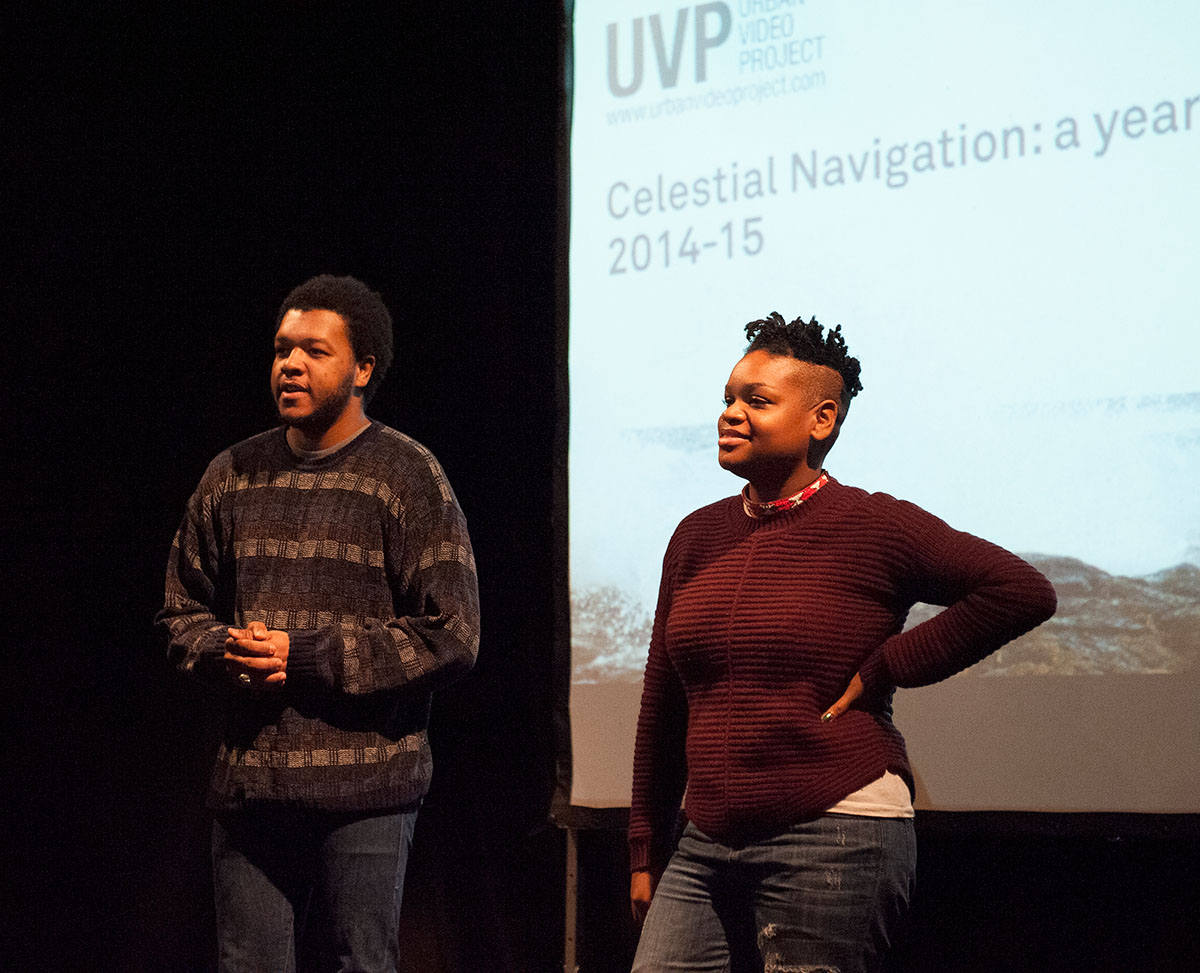
Amir George and Erin Christovale at Community Folk Art Center for BRI II screening and panel
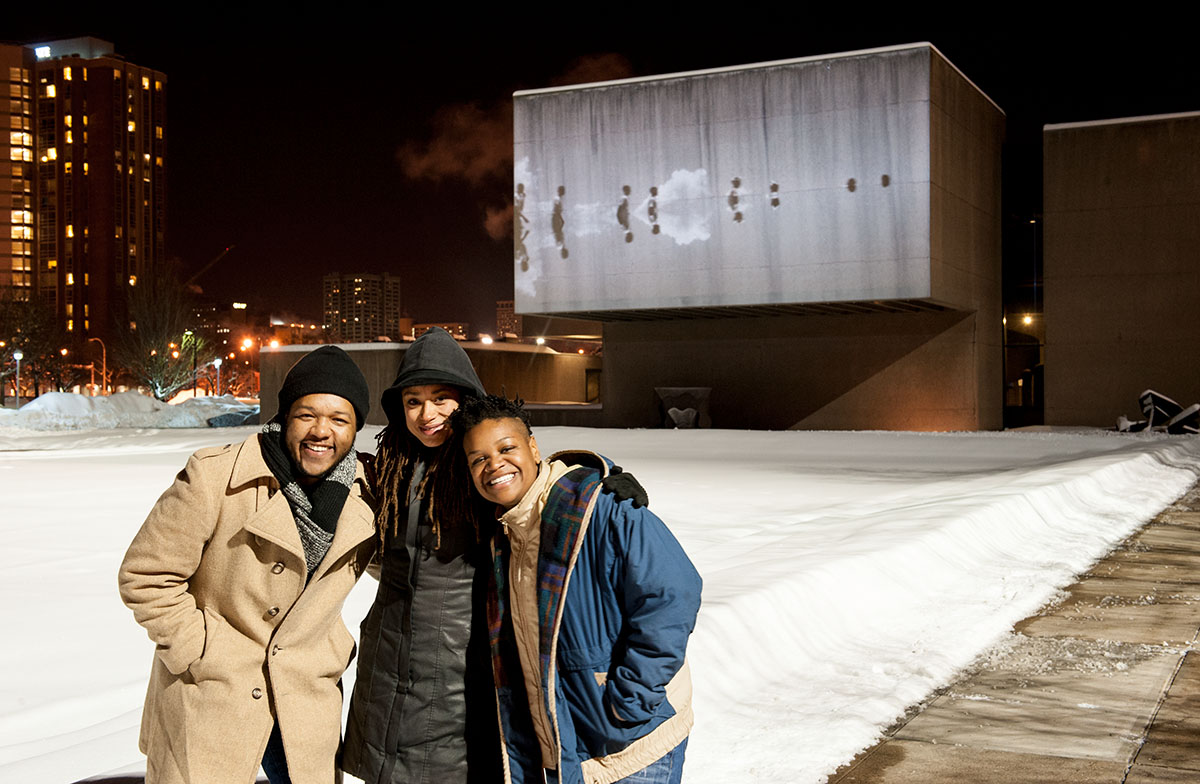
Black Radical Imagination Curators Amir George (left) and Erin Christovale (right) with featured artist Jeannette Ehlers (center) with UVP Everson projection of Ehlers’ Black Bullets.
—
Erin Cristovale is a curator based in Los Angeles focusing on film/video within the African Diaspora. She graduated with a B.A. from the USC School of Cinematic Arts and currently has an exhibition at the MoCADA Museum called a/wake in the water:Meditations on Disaster. She also works with a collective of creatives called Native Thinghood promoting emerging artists of color.
Amir George is a motion picture artist and film curator from Chicago. His video work and curated programs have been screened in festivals and galleries across the US, Canada, and Europe. In addition to founding The Cinema Culture, a grassroots film programming organization, Amir George was founding programmer of Black Cinema House, a residential cinema space on Chicago’s south side. He currently teaches and produces media with youth throughout Chicagoland.
Tiffany E. Barber is a scholar, curator, and writer of twentieth and twenty-first century visual art and performance with a focus on artists of the black diaspora living and working in the United States. Her essay on artist Wangechi Mutu and Octavia Butler’s 1979 novel Kindred is forthcoming in Afrofuturism 2.0: The Rise of Astroblackness (Lexington Books)
Jerome P Dent, Jr. is a graduate student at the University of Rochester whose work sits at the intersection of critical race theory, philosophy, and speculative fiction and film with a special focus on black imaginative labors.
Event photography by Matthew Pevear.
—
Barber and Dent will continue this series of afrofurist posts for Urban Video Project on the Light Work blog in coming weeks. Please stay tuned! Barber and Dent will also participate on the Speculations event panel on April 7 in celebration of the world premiere Cauleen Smith: Crow Requiem at UVP Everson. Join the event on Facebook.

